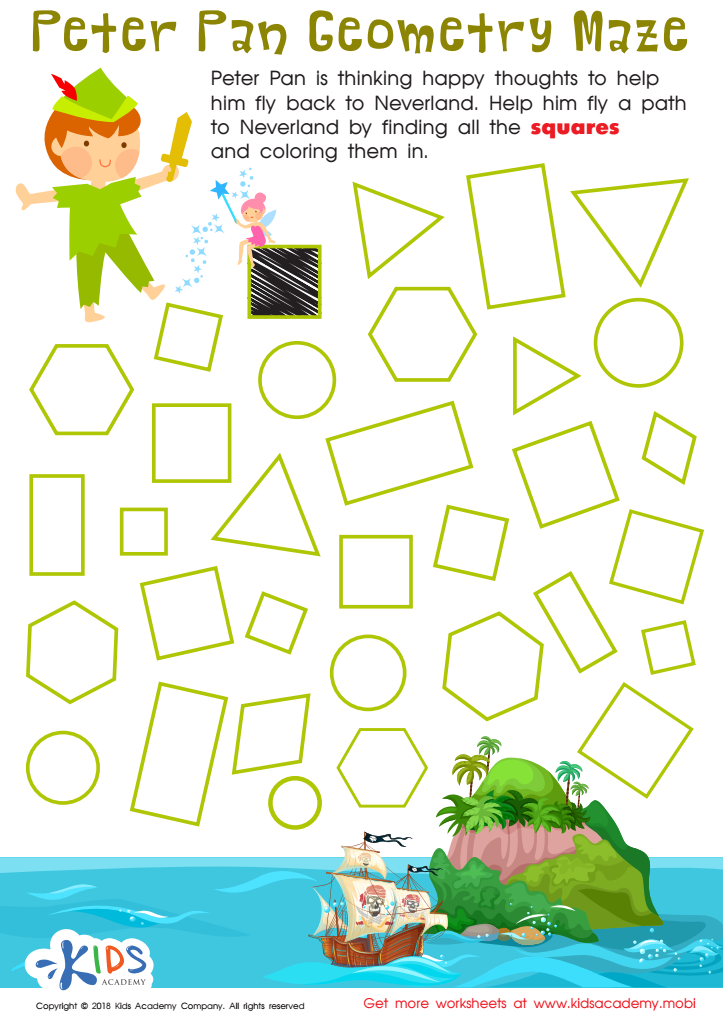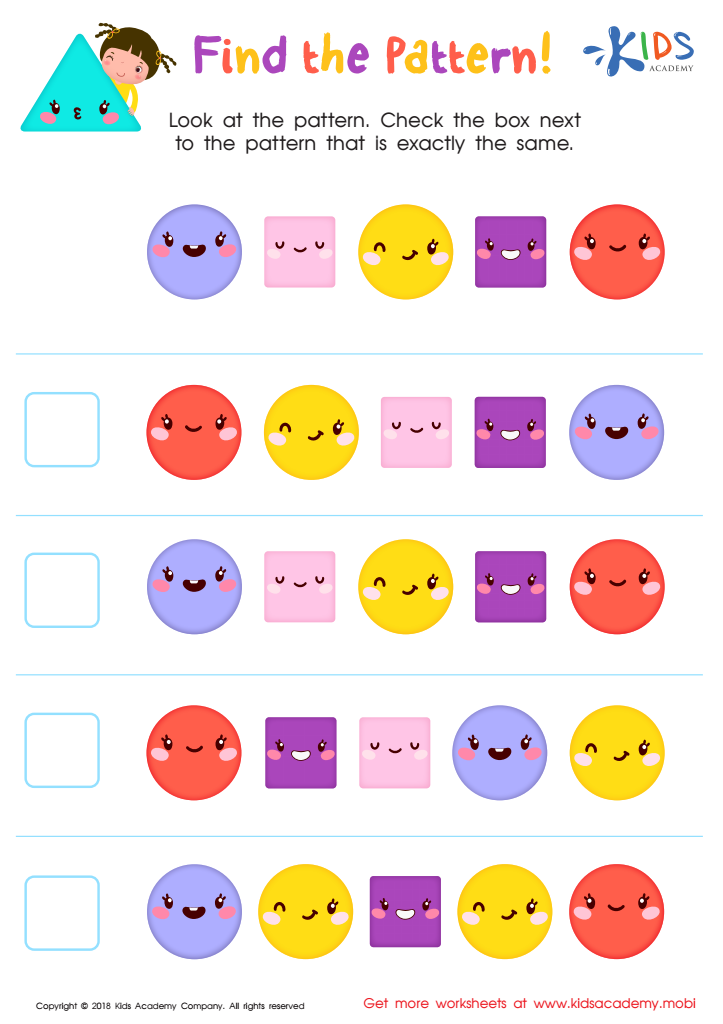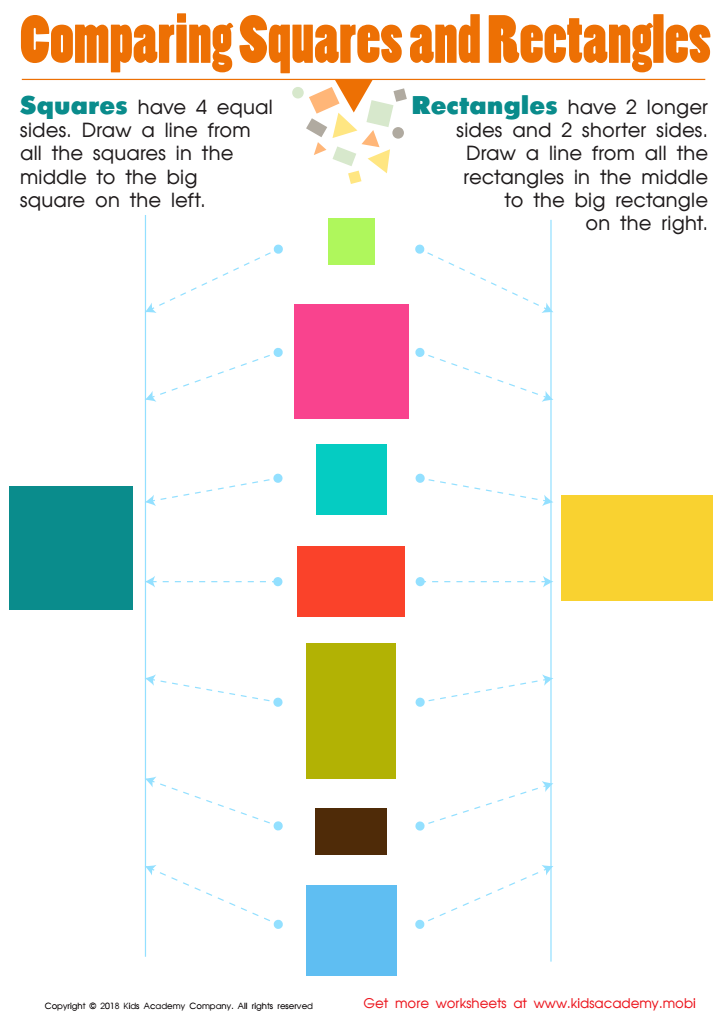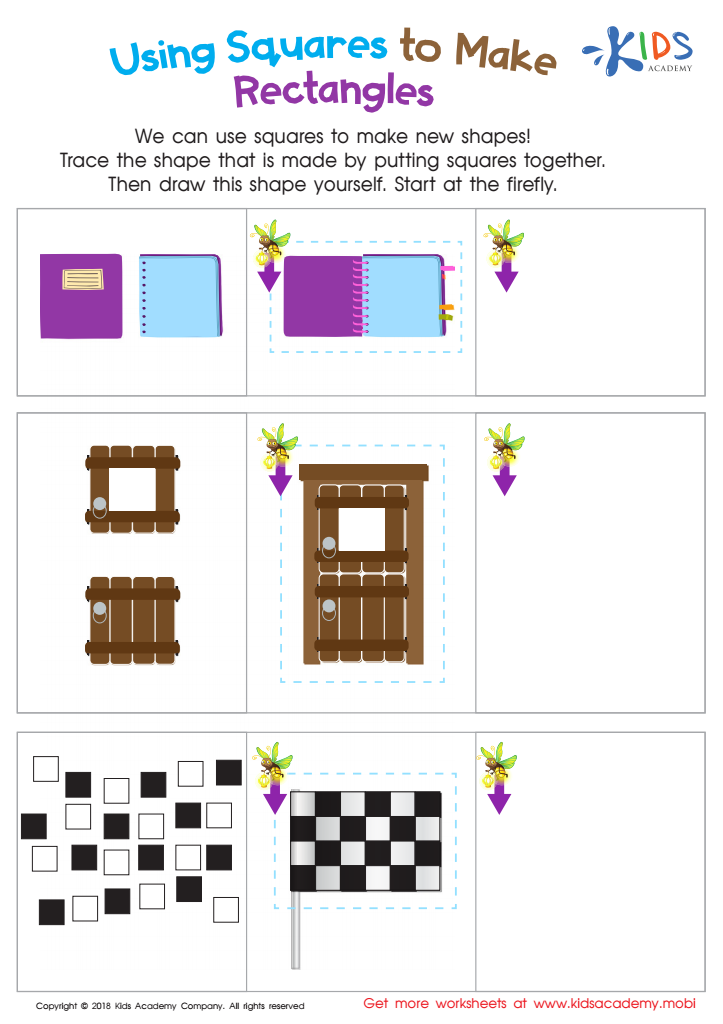Critical Thinking Geometry Worksheets for Ages 3-4
5 filtered results
-
From - To
Discover our engaging Critical Thinking Geometry Worksheets designed specifically for children ages 3-4. These worksheets promote early mathematical skills by encouraging young learners to think critically while exploring fundamental geometry concepts. With fun shapes, patterns, and puzzles, kids will not only develop their spatial awareness but also enhance problem-solving abilities. Our resources are tailored to spark curiosity and creativity, making learning an enjoyable experience. Perfect for parents and educators, these worksheets support preschool education and align with developmental milestones. Help your child build a strong foundation in geometry with activities that challenge their thinking and foster a lifelong love for learning!


Peter Pan Worksheet


Find the Pattern Worksheet


Comparing Squares Rectangles Worksheet


Make the Same Pattern Worksheet


Using Squares to Make Rectangles Worksheet
Critical thinking in geometry for ages 3-4 is vital for laying a strong foundation in young children’s cognitive development. At this early age, children begin to make sense of the world around them, and incorporating geometric principles fosters their spatial awareness and problem-solving skills. Engaging in activities that promote critical thinking allows children to identify shapes, understand spatial relationships, and explore patterns, all of which are essential components of mathematical understanding.
Parents and teachers should care about this topic because geometric reasoning helps children develop critical thinking abilities that extend beyond mathematics. These skills encourage curiosity, creativity, and analytical reasoning. Moreover, children learn to ask questions, assess information, and think independently—qualities that are invaluable in today's fast-paced world.
Additionally, introducing critical thinking geometry through play and interactive activities can enhance social skills during cooperative tasks, strengthen language development through describing shapes and relationships, and support emotional growth by building confidence in problem-solving. Ultimately, fostering these skills in early childhood creates a solid groundwork for academic success, empowering children to tackle increasingly complex concepts in later years and becoming lifelong learners. Investing in critical thinking geometry at this stage is crucial for holistic development.
 Assign to My Students
Assign to My Students






























